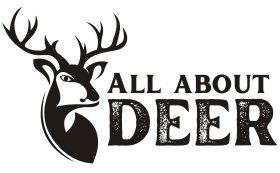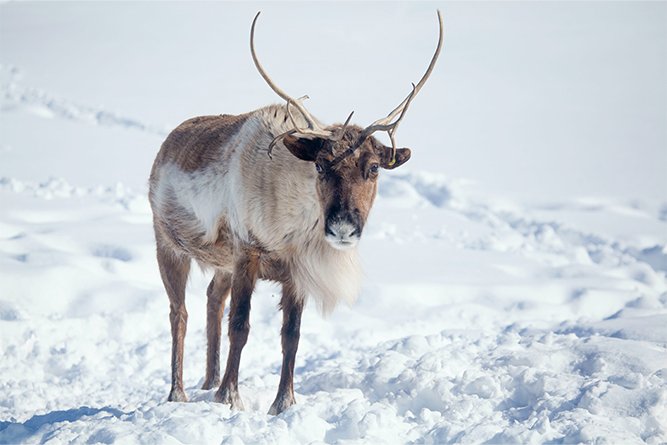The question of whether reindeer eat asparagus is one that has intrigued many wildlife enthusiasts, biologists, and even those who are simply curious about the dietary habits of this fascinating animal.
This article aims to delve deep into the subject, examining the diet of reindeer and the likelihood of asparagus being a part of it.
Table of Contents
Key Takeaways:
- Reindeer are primarily herbivores but their diet varies depending on the season.
- Asparagus is not a natural part of a reindeer’s diet, but they can consume it.
- Nutritional value of asparagus in comparison to other plants in a reindeer’s diet.
- Human influence on reindeer diet and the introduction of new foods like asparagus.
What Do Reindeer Generally Eat?
Natural Diet in the Wild
Reindeer, also known as caribou in North America, are primarily herbivores. In the wild, their diet consists mainly of leaves, grasses, and herbs. During the winter months, they often feed on lichen and moss, which are easier to find under the snow.
Seasonal Variations
The diet of reindeer changes with the seasons. In summer, they enjoy a more varied diet, including berries, mushrooms, and even aquatic plants. This is in contrast to the winter months, where their options are limited due to the harsh conditions.
Is Asparagus a Natural Part of Their Diet?
Geographic Distribution of Asparagus
Asparagus is a plant that is commonly found in parts of Europe, Asia, and Africa. It is not native to the Arctic regions where reindeer are commonly found. Therefore, it is unlikely that asparagus is a natural part of a reindeer’s diet.
Nutritional Value
While asparagus is rich in nutrients like fiber, vitamins, and minerals, it doesn’t offer any unique nutritional benefits that reindeer can’t get from their natural diet. Plants like lichen and moss, which are staples in a reindeer’s diet, provide sufficient nutrients for them to survive in their natural habitat.
Can Reindeer Eat Asparagus?
Digestive System and Adaptability
Reindeer have a complex digestive system that allows them to break down a variety of plant materials. They have a four-chambered stomach, similar to cows, which enables them to ferment and digest a wide range of plants. This suggests that reindeer could potentially eat asparagus without any adverse effects.
Human Influence and Domestic Reindeer
With human encroachment into natural habitats, the diet of many wild animals, including reindeer, is changing. Domesticated reindeer, which are often fed a diet prepared by humans, may be introduced to a variety of foods that are not part of their natural diet, including asparagus.
Ethical Considerations
Impact on Natural Behavior
Introducing new foods like asparagus to reindeer can have an impact on their natural behavior and dietary habits. It is essential to consider the ethical implications of altering an animal’s diet, especially if it is not nutritionally necessary.
Environmental Concerns
The cultivation and transportation of asparagus to feed reindeer could have environmental implications, including carbon footprint and habitat destruction. Therefore, it is crucial to weigh the environmental costs against any potential benefits.
How Do Reindeer Adapt to Seasonal Changes in Diet?
Efficient Digestive System
One of the most remarkable features of reindeer is their efficient digestive system. As mentioned earlier, they have a four-chambered stomach that allows them to digest a wide range of plant materials. This adaptability is crucial for surviving the harsh Arctic winters when food is scarce.
Foraging Behavior
Reindeer are excellent foragers. They use their keen sense of smell to locate food under the snow. During winter, they scrape away the snow using their hooves to reach the lichen and moss beneath. This foraging behavior enables them to adapt to the seasonal changes in their diet effectively.
What Are the Health Implications of Feeding Asparagus to Reindeer?
Potential for Digestive Issues
While reindeer have a robust digestive system, introducing a new food like asparagus could potentially cause digestive issues. The high fiber content in asparagus could lead to bloating or gas, especially if consumed in large quantities.
Nutritional Imbalance
Asparagus is rich in certain nutrients but lacks others that are essential for reindeer. Feeding them asparagus could lead to a nutritional imbalance, affecting their overall health and well-being.
Human-Animal Interaction and Its Influence on Diet
Feeding Wild Reindeer
It’s not uncommon for tourists in certain regions to feed wild animals, including reindeer. While this may seem like a harmless act, it can have significant implications on the animal’s health and natural behavior. Feeding them foods like asparagus, which are not part of their natural diet, can be particularly problematic.
Domesticated Reindeer and Controlled Diets
In contrast to their wild counterparts, domesticated reindeer often have diets that are controlled by humans. This includes a variety of foods that they wouldn’t naturally consume, possibly including asparagus. However, it’s essential to consult with a veterinarian or animal nutritionist to ensure that the diet meets the reindeer’s nutritional needs.
Frequently Asked Questions
Can reindeer eat other vegetables?
Yes, reindeer can eat other vegetables, but it’s essential to introduce them gradually and monitor for any adverse effects.
Is it ethical to feed asparagus to reindeer?
The ethics of feeding asparagus to reindeer are debatable and depend on various factors, including the animal’s health and the environmental impact.
What are the natural predators of reindeer?
Natural predators of reindeer include wolves, bears, and, in some regions, large birds of prey like eagles.
How do reindeer find food in the wild?
Reindeer use their keen sense of smell and foraging behavior to locate food, even under layers of snow.


